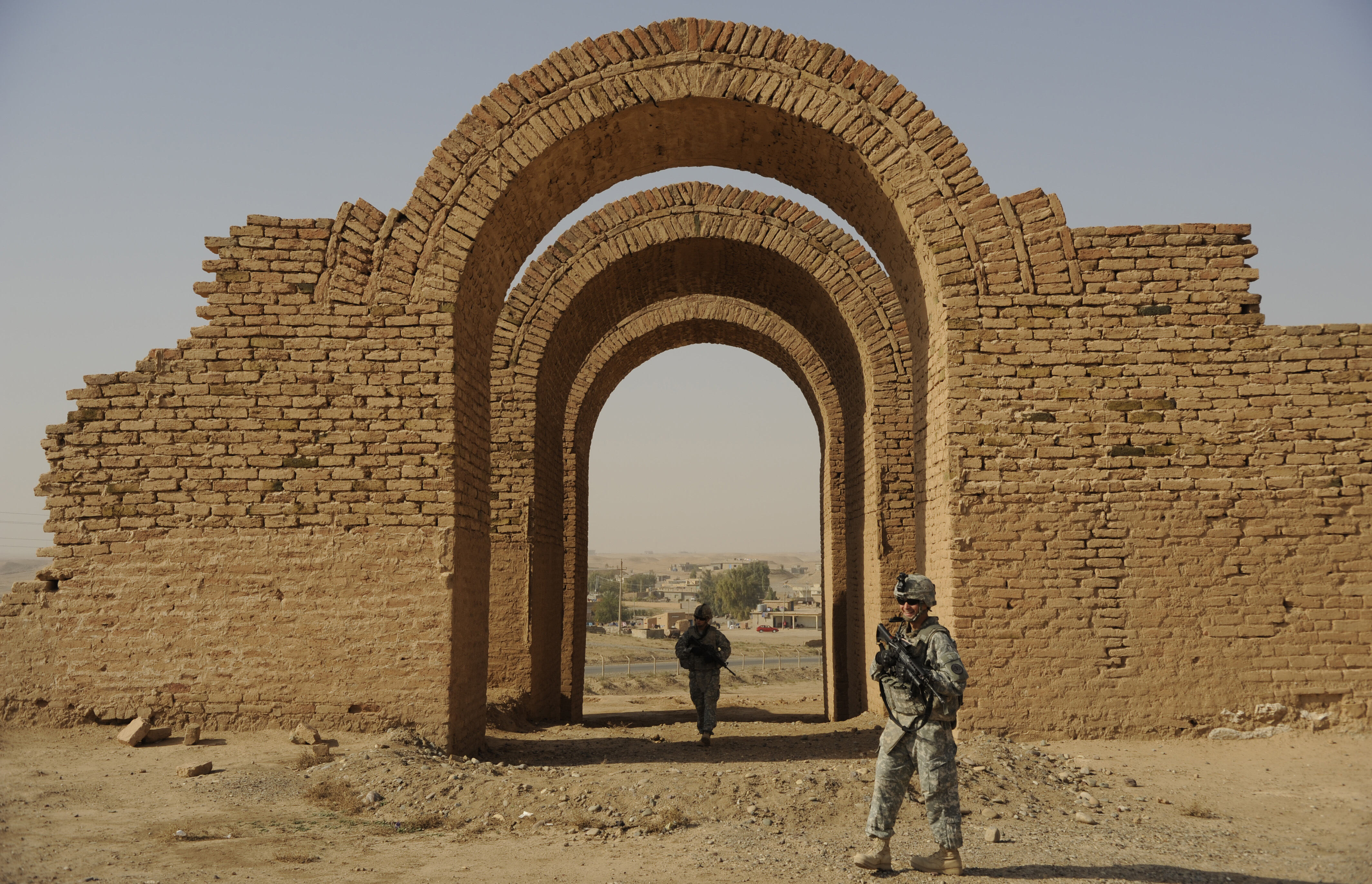
Assyût, also known as Asyut, is a fascinating city located in Egypt. With a rich history and a vibrant culture, this city has plenty to offer to both locals and tourists. From historical landmarks to bustling markets, Assyût combines the charm of a traditional Egyptian city with modern amenities. In this article, we will explore 34 interesting facts about Assyût that will give you a deeper understanding of its significance and allure. Whether you are planning a visit to Assyût or simply curious about this captivating city, read on to discover the hidden gems and unique aspects that make Assyût a must-see destination in Egypt.
Key Takeaways:
- Assyût, an ancient city in Egypt, has a rich history dating back over 4,000 years, vibrant cultural traditions, and stunning architectural marvels, making it a captivating destination for history enthusiasts and culture lovers.
- With its diverse population, religious harmony, and picturesque landscapes, Assyût offers a serene escape for nature lovers and a vibrant cultural experience for those seeking to explore Egypt’s ancient wonders.
Ancient Origins
Assyût is one of the oldest continuously inhabited cities in the world, dating back over 4,000 years.
Strategic Location
Situated on the western bank of the Nile River, Assyût served as a vital trading hub connecting Upper and Lower Egypt.
Cultural Capital
Known as “The Pearl of Upper Egypt,” Assyût is renowned for its vibrant arts and cultural scene.
Historical Significance
Assyût played a significant role in ancient Egyptian history, serving as the capital of the Thirteenth Nome of Upper Egypt.
Architectural Marvels
The city is home to stunning architectural sites, including the Temple of Amun, dedicated to the ancient Egyptian god of the sun and air.
Cultural Diversity
Assyût is known for its diverse population, consisting of Egyptians from various ethnic backgrounds.
Educational Hub
The city is home to Assiut University, one of Egypt’s leading educational institutions.
Literary Legacy
Assyût has produced numerous renowned poets and writers, making it a center for literature and intellectual discourse.
Cotton Capital
With its fertile soil and favorable climate, Assyût is a major producer of cotton in Egypt.
Festivals Galore
The city hosts various colorful festivals throughout the year, showcasing its cultural heritage and traditions.
Connection to Pharaohs
Assyût is closely associated with the ancient Egyptian pharaohs, serving as their gateway to Upper Egypt.
Vibrant Souks
The bustling markets and souks of Assyût offer a vibrant shopping experience, where locals and tourists can indulge in a variety of goods.
Religious Harmony
Assyût is a city where people of different faiths coexist peacefully, including Muslims, Christians, and a small Jewish community.
Archaeological Marvels
The city and its surrounding areas are dotted with archaeological sites, shedding light on Egypt’s ancient history.
Sohag Museum
Located in neighboring Sohag, the Sohag National Museum displays a fascinating collection of artifacts from the region.
Cultural Traditions
Assyût is known for its rich cultural traditions, including traditional music, dance, and folklore that have been preserved for centuries.
Center for Islamic Studies
Assyût is renowned for its Islamic seminaries and institutions, attracting students from around the world.
Traditional Handicrafts
The skilled artisans of Assyût produce exquisite handicrafts, including intricate embroidery, pottery, and weaving.
Assiut Dam
The Assiut Dam, located on the Nile River, plays a vital role in regulating water flow and irrigation in the region.
Historical Battlefields
Assyût has witnessed significant battles throughout history, from ancient times to conflicts during the Arab Spring.
Medinet Madi
The archaeological site of Medinet Madi in Assyût is home to well-preserved ruins of a Greco-Roman city.
Ancient Universities
Assyût was an intellectual center during the Middle Ages, housing renowned Islamic universities such as Al-Azhar University.
Connection to Ibrahim Pasha
Ibrahim Pasha, the son of Egypt’s ruler Mohammed Ali, played a pivotal role in modernizing Assyût during the 19th century.
Cultural Heritage Museums
The city hosts several museums that display Assyût’s rich cultural heritage, showcasing ancient artifacts, art, and historical documents.
Natural Beauty
Surrounded by picturesque landscapes and the scenic Nile River, Assyût offers a serene escape for nature lovers.
Festivals of the Nile
Assyût celebrates the annual “Festivals of the Nile” to commemorate the historic connection between the city and the river.
Islamic Architecture
The city is adorned with stunning examples of Islamic architecture, including mosques with intricate designs and ornate minarets.
Assiut Women Basketball Club
The Assiut Women Basketball Club is known for its success in the Egyptian basketball league and has a dedicated fan base.
Connection to Christianity
Assyût is considered a significant center for Coptic Christianity, home to numerous ancient Coptic churches and monasteries.
Agricultural Heartland
Known as the “Breadbasket of Egypt,” Assyût is a major agricultural region and contributes significantly to the country’s food production.
Assiut Railway Station
The Assiut Railway Station is a vital transportation hub, connecting Assyût to major cities across Egypt.
Religious Festivities
The city celebrates religious festivities with great zeal, including the Coptic Christmas and the Muslim holy month of Ramadan.
Asyut War Cemetery
The Asyut War Cemetery serves as a reminder of the sacrifices made by soldiers during World War II and the conflicts that followed.
Cultural Revival
Assyût has seen a resurgence in cultural activities, with initiatives aimed at preserving and promoting its unique heritage.
As you delve into the wonders of Assyût, you’ll find a city that echoes the grandeur of ancient Egypt while embracing the vibrancy of its modern spirit. With its rich history, diverse culture, and breathtaking landmarks, Assyût truly captivates the hearts of all who visit.
Conclusion
Assyût is a fascinating city with a rich history and unique cultural heritage. From its ancient temples and tombs to its vibrant markets and festivals, there is always something to discover and explore. Whether you’re interested in archaeology, architecture, or simply immersing yourself in the local traditions, Assyût has something to offer every visitor.As the largest city in Upper Egypt, Assyût serves as a gateway to the region’s treasures. Its strategic location along the Nile River and its vibrant community make it a must-visit destination for travelers seeking an authentic Egyptian experience. From visiting the nearby monasteries of Wadi Natrun to exploring the lush landscapes of the surrounding countryside, Assyût is a treasure trove of cultural and natural wonders.With its warm and welcoming locals, delicious cuisine, and vibrant arts scene, Assyût is a city that offers a truly immersive and unforgettable experience. So, whether you’re planning a trip to Egypt or looking to uncover the hidden gems of Upper Egypt, be sure to include Assyût in your itinerary.
FAQs
1. What is the history of Assyût?
Assyût has a long and storied history dating back thousands of years. It was once the capital of the Upper Egyptian kingdom and played a significant role in ancient Egypt’s political and cultural landscape.
2. What are some must-visit attractions in Assyût?
Some must-visit attractions in Assyût include the Temple of El-Qalaa, the Assiut Barrage, the Monastery of Al-Muharraq, and the Ghulwan Castle. Each of these sites offers a unique glimpse into Assyût’s rich history and architectural heritage.
3. What is the best time to visit Assyût?
The best time to visit Assyût is during the winter months (between November and February) when the weather is cooler and more pleasant for exploring the city’s outdoor attractions. However, Assyût can be visited year-round, so it ultimately depends on your preferences.
4. Is Assyût a safe city for tourists?
Assyût is generally a safe city for tourists. However, like any other destination, it’s essential to take standard safety precautions such as staying aware of your surroundings, avoiding isolated areas at night, and keeping an eye on your belongings.
5. What are some popular local dishes to try in Assyût?
Some popular local dishes to try in Assyût include Mulukhiyah (a green leafy soup), Feteer (a type of pastry), and Koshari (a mix of rice, lentils, pasta, and tomato sauce). These dishes offer a unique taste of the local cuisine and are widely enjoyed by both locals and visitors.
Assyût's rich history and vibrant culture offer a glimpse into Egypt's fascinating past. Explore more captivating facts about the Middle East, uncover the mysteries of ancient civilizations like Tiwanaku, or discover the hidden gems of Egyptian cities such as Zagazig. Each destination holds its own unique stories, waiting to be unveiled by curious minds seeking to broaden their horizons and gain a deeper understanding of our world's diverse tapestry.
Was this page helpful?
Our commitment to delivering trustworthy and engaging content is at the heart of what we do. Each fact on our site is contributed by real users like you, bringing a wealth of diverse insights and information. To ensure the highest standards of accuracy and reliability, our dedicated editors meticulously review each submission. This process guarantees that the facts we share are not only fascinating but also credible. Trust in our commitment to quality and authenticity as you explore and learn with us.


